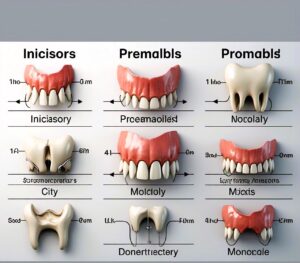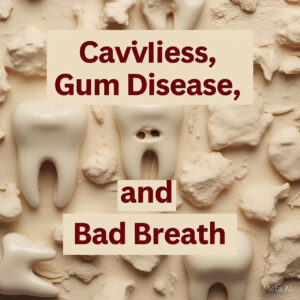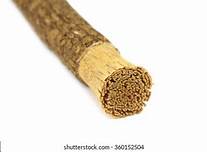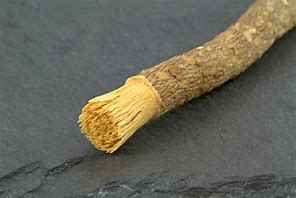Teeth Problems: Understanding Causes, Symptoms, and Treatments in 2025
Introduction to Teeth
Teeth are a vital part of the human body, playing a crucial role in our overall health and well-being. They are responsible for breaking down food, speaking, and maintaining the shape of our faces. In Teeth Problems Understanding Causes, Symptoms, and Treatments in 2025, we will explore the world of teeth, exploring their structure, types, functions, and importance.

How many teeth do humans have?
Most adults have 32 permanent teeth. But some people are born with missing teeth (hypodontia), and some people have extra teeth (hyperdontia).
Most children have 20 primary teeth that grow in (erupt) between the ages of 4 months and 6 years old. These are baby teeth that’ll eventually fall out and make room for permanent adult teeth.
Structure of Teeth
A tooth is composed of several layers, each with its unique characteristics and functions. The main layers of a tooth are:
Enamel: The outermost layer of the tooth, enamel is the hardest substance in the human body. It is a thin, translucent layer that protects the tooth from decay and damage.
Dentin: The layer beneath the enamel, dentin is a softer, more porous material that makes up the bulk of the tooth. It contains tiny tubes that transmit sensations of temperature and pressure.
Cementum: A thin layer of bone-like tissue that covers the root of the tooth, cementum helps to anchor the tooth to the surrounding bone.
Pulp: The soft, innermost layer of the tooth, the pulp contains blood vessels, nerves, and connective tissue. It is responsible for supplying the tooth with oxygen and nutrients.
Types of Teeth

There are several types of teeth, each with its unique shape and function. The main types of teeth are:
Incisors: The front teeth and incisors are used for biting and cutting food.
Canines: The pointed teeth on either side of the incisors, canines are used for tearing and piercing food.
Premolars: The teeth behind the canines, premolars are used for crushing and grinding food.
Molars: The back teeth and molars are used for grinding and crushing food.
Wisdom Teeth: The third set of molars, wisdom teeth, typically emerge between the ages of 17 and 25.
Functions of Teeth
Teeth play a vital role in our overall health and well-being. Some of the main functions of teeth include:
Biting and Chewing: Teeth are responsible for breaking down food into smaller, more manageable pieces.
Speaking: Teeth help to form words and sounds, allowing us to communicate effectively.
Maintaining Facial Shape: Teeth help to maintain the shape of our face, supporting the lips, cheeks, and jawbone.
Aiding Digestion: Teeth help to break down food, making it easier to digest and absorb nutrients.
Importance of Teeth
Teeth are essential for our overall health and well-being. Some of the reasons why teeth are important include:
Nutrition: Teeth help us to eat and digest food, providing our bodies with the nutrients we need to function.
Confidence: A healthy, attractive smile can boost our confidence and self-esteem.
Social Interactions: Teeth play a crucial role in social interactions, allowing us to communicate effectively and form connections with others.
Overall Health: Teeth are linked to our overall health, with research suggesting that gum disease may be linked to conditions such as heart disease and diabetes.
Common Teeth Problems
Despite their importance, teeth can be prone to problems. Some common teeth problems include:
Tooth Decay: A bacterial infection that causes demineralisation of tooth enamel, leading to cavities.
Gum Disease: A bacterial infection that causes inflammation of the gums, leading to pain, swelling, and potential tooth loss.
Tooth Loss: The loss of one or more teeth, which can be caused by decay, gum disease, or trauma.
Tooth Sensitivity: A condition where the teeth are sensitive to hot or cold temperatures, sweet or sour tastes, or pressure.
Teeth are a vital part of our overall health and well-being, playing a crucial role in our ability to eat, speak, and maintain our facial shape. Understanding the structure, types, functions, and importance of teeth can help us to appreciate the importance of oral health and take steps to protect our teeth. By practising good oral hygiene and visiting our dentist regularly, we can help prevent common teeth problems and maintain a healthy, attractive smile.

The Worst Enemies of Healthy Teeth
Healthy teeth are essential for a beautiful smile, a confident personality, and overall well-being. However, several factors can damage teeth and compromise oral health. Here are some of the worst enemies of healthy teeth:
Sugar: Sugar is one of the most significant contributors to tooth decay and cavities. When bacteria in the mouth break down sugar, they produce acid that can damage tooth enamel.
Acidic Foods and Drinks: Acidic foods and drinks, such as citrus fruits, soda, and sports drinks, can erode tooth enamel and increase the risk of tooth decay.
Tobacco: Tobacco use, including smoking and chewing tobacco, can lead to tooth decay, gum disease, and oral cancer.
Poor Oral Hygiene: Failing to brush and floss teeth regularly can lead to the buildup of plaque, tartar, and bacteria, which can cause tooth decay and gum disease.
Grinding and Clenching: Grinding and clenching teeth can wear down tooth enamel and lead to chipped or cracked teeth.
Dry Mouth: Dry mouth, also known as xerostomia, can increase the risk of tooth decay and other oral health problems.
Gum Disease: Gum disease, also known as periodontal disease, can cause inflammation and infection of the gums, leading to tooth loss and other oral health problems.
Tooth Decay: Tooth decay, also known as cavities, can damage tooth enamel and lead to pain, infection, and tooth loss.
Cracked Teeth: Cracked teeth can be caused by trauma, grinding, or biting on hard objects, and can lead to pain, infection, and tooth loss.
Oral Cancer: Oral cancer can be caused by tobacco use, human papillomavirus (HPV), and other factors, and can lead to tooth loss, disfigurement, and even death.
Medications: Certain medications, such as antidepressants, antihistamines, and decongestants, can cause dry mouth, which can increase the risk of tooth decay and other oral health problems.
Hormonal Changes: Hormonal changes, such as those that occur during pregnancy or menopause, can increase the risk of tooth decay and other oral health problems.
Nutritional Deficiencies: Nutritional deficiencies, such as a lack of calcium or vitamin D, can increase the risk of tooth decay and other oral health problems.
Genetics: Genetics can play a role in the development of oral health problems, such as tooth decay and gum disease.
Ageing: Ageing can increase the risk of oral health problems, such as tooth decay, gum disease, and oral cancer.
Prevention is Key
While these factors can damage teeth and compromise oral health, some steps can be taken to prevent or minimise their impact. These include:
Brushing and flossing teeth regularly
Visiting the dentist for regular checkups and cleanings
Avoiding sugary and acidic foods and drinks
Quitting tobacco use
Wearing a mouthguard to protect teeth from grinding and clenching
Staying hydrated to prevent dry mouth
Eating a balanced diet that includes plenty of fruits, vegetables, and whole grains
By taking these steps, individuals can help to protect their teeth and maintain good oral health.
Diagnosis of Teeth Problems
Diagnosing teeth problems typically involves a combination of:
Visual Examination: A visual examination of the teeth and gums to look for signs of decay, cracks, or other problems.
X-rays: X-rays may be taken to look for signs of decay or other problems that are not visible to the naked eye.
Probing: Probing may be used to check for signs of gum disease or other problems.
Treatments for Teeth Problems
The treatment for teeth problems depends on the type and severity of the problem. Some common treatments include:
Fillings: Fillings are used to repair teeth that have been damaged by decay or trauma.
Crowns: Crowns are used to cover teeth that have been damaged by decay or trauma.
Root Canals: Root canals are used to treat teeth that have been infected by bacteria.
Extractions: Extractions are used to remove teeth that are damaged beyond repair.
Dental Implants: Dental implants are used to replace missing teeth.
Effectiveness of Treatments
The effectiveness of treatments for teeth problems can vary depending on the type and severity of the problem. In general, treatments are highly effective in repairing or replacing damaged teeth. However, the success of treatment depends on the individual’s oral health and the severity of the problem.
Potential Side Effects of Treatments
The potential side effects of treatments for teeth problems can vary depending on the type of treatment. Some common side effects include:
Pain: Pain or discomfort after treatment
Swelling: Swelling or bruising after treatment
Infection: Infection after treatment
Allergic Reactions: Allergic reactions to materials used in treatment
The Use of Miswak for Teeth and Oral Health
Miswak, also known as Siwak or Arak, is a traditional toothbrush made from the bark or roots of the Salvadora persica tree. It has been used for centuries in many parts of the world, particularly in the Middle East and South Asia, for cleaning teeth and maintaining oral health.
Benefits of Miswak for Teeth and Oral Health

Antibacterial properties: Miswak has been shown to have antibacterial properties, which can help to reduce the growth of bacteria in the mouth and prevent tooth decay and gum disease.
Anti-inflammatory properties: Miswak has anti-inflammatory properties, which can help to reduce inflammation and swelling in the gums and prevent gum disease.
Antioxidant properties: Miswak has antioxidant properties, which can help to protect the teeth and gums from damage caused by free radicals.
Removes plaque and tartar: Miswak is effective in removing plaque and tartar from the teeth, which can help to prevent tooth decay and gum disease.
Freshen breath: Miswak has a fresh, clean scent that can help to freshen breath and leave the mouth feeling clean and refreshed.
Gum health: Miswak is effective in reducing gum inflammation and improving gum health.
Tooth whitening: Miswak has been found to have a mild tooth whitening effect, which can help to remove stains and discolouration from the teeth.

How to Use Miswak
To use Miswak, follow these steps:
Cut a piece of Miswak: Cut a piece of Miswak about the size of a toothbrush.
Soak in water: Soak the Miswak in water for a few minutes to soften the fibres.
Brush teeth: Brush your teeth with the Miswak, using a gentle circular motion.
Focus on the gum line: Focus on the gum line, where the teeth and gums meet.
Brush for 2-3 minutes: Brush your teeth for 2-3 minutes, making sure to cover all surfaces.
Rinse with water: Rinse your mouth with water to remove any remaining debris.
Precautions
While Miswak is generally considered safe to use, there are some precautions to take:
Use a clean Miswak: Make sure to use a clean Miswak, and avoid sharing it with others.
Avoid using Miswak with braces: Avoid using Miswak if you have braces, as it can damage the wires and brackets.
Avoid using Miswak with sensitive teeth: Avoid using Miswak if you have sensitive teeth, as it can cause discomfort and pain.
Consult a dentist: Consult a dentist before using Miswak, especially if you have any underlying oral health issues.
Herbs and Spices for Teeth Health
Herbs and spices have been used for centuries to promote oral health and prevent tooth problems. Here are some of the most effective herbs and spices for teeth health:
Turmeric: Turmeric contains curcumin, a powerful antioxidant that reduces inflammation and prevents plaque buildup.
Ginger: Ginger has antibacterial properties that help prevent tooth decay and gum disease.
Cinnamon: Cinnamon has antibacterial properties that help prevent tooth decay and gum disease.
Cloves: Cloves contain eugenol, a natural anaesthetic that helps reduce toothache pain and prevent infection.
Neem: Neem has antibacterial properties that help prevent tooth decay and gum disease.
Sage: Sage has antibacterial properties that help prevent tooth decay and gum disease.
Peppermint: Peppermint has antibacterial properties that help freshen breath and prevent tooth decay.
Eucalyptus: Eucalyptus has antibacterial properties that help prevent tooth decay and gum disease.
Rosemary: Rosemary has antibacterial properties that help prevent tooth decay and gum disease.
Thyme: Thyme has antibacterial properties that help prevent tooth decay and gum disease.
How to Use Herbs and Spices for Teeth Health
Here are some ways to use herbs and spices to promote teeth health:
Make a mouthwash: Steep herbs and spices in water to make a mouthwash that can help reduce plaque and prevent tooth decay.
Add to toothpaste: Add herbs and spices to your toothpaste to give it an extra boost of antibacterial power.
Use as a gum rub: Rub herbs and spices on your gums to reduce inflammation and prevent gum disease.
Make a tea: Drink tea made from herbs and spices to help reduce plaque and prevent tooth decay.
Use as a breath freshener: Chew on herbs and spices to freshen your breath and prevent bad breath.
Precautions
While herbs and spices can be helpful for teeth health, there are some precautions to take:
Consult a dentist: Before using any new herbs or spices, consult with your dentist to make sure they are safe for your teeth and gums.
Use in moderation: Use herbs and spices in moderation, as excessive use can cause tooth sensitivity or other problems.
Avoid using essential oils: Essential oils can be too concentrated and may cause tooth sensitivity or other problems. Instead, use dried or fresh herbs and spices.
Herbs and spices can be a natural and effective way to promote teeth health and prevent teeth problems. By using herbs and spices in moderation and consulting with your dentist, you can help keep your teeth and gums healthy and strong.
Miswak is a natural and effective way to maintain oral health and clean teeth. Its antibacterial, anti-inflammatory, and antioxidant properties make it an excellent alternative to traditional toothbrushes. By following the proper usage and precautions, you can enjoy the benefits of Miswak for a healthy and clean smile.
Conclusion
Teeth problems are a common issue that can affect anyone, regardless of age or oral health. Understanding the causes, symptoms, and diagnosis of teeth problems is essential for getting effective treatment. Available treatments can vary depending on the type and severity of the problem but are generally highly effective in repairing or replacing damaged teeth. However, it is essential to discuss potential side effects with a dentist before undergoing treatment.
Sources:
American Dental Association
National Institute of Dental and Craniofacial Research
Journal of Dental Research
Disclaimer: The contents of this article are intended to raise awareness about common health issues and should not be viewed as sound medical advice for your specific condition. You should always consult with a licensed medical practitioner before following any suggestions outlined in this article or adopting any treatment protocol based on the contents of this article.
Understanding Anger: A Comprehensive Guide in 2025